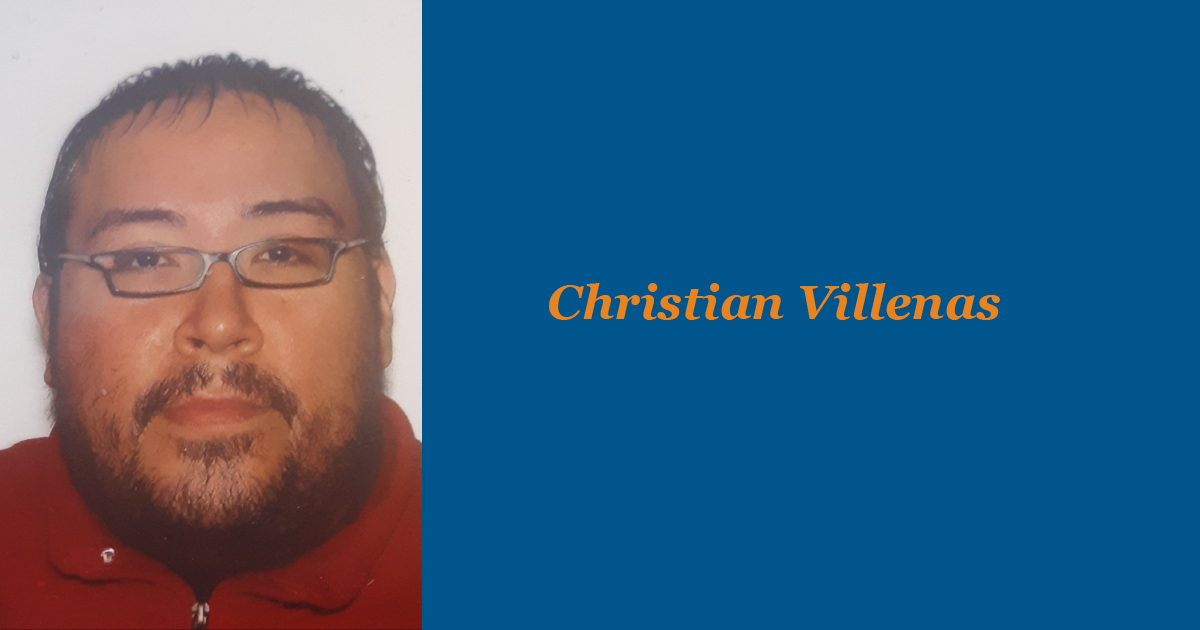A Q&A with Christian Villenas, 2011 MDRC Doctoral Fellow

This is the third in a series of Q&As with past participants in MDRC’s Judith Gueron Minority Scholars Program to hear their reflections on their experiences at MDRC and to learn what they’re up to today.
 About Christian Villenas: Villenas holds a Ph.D. in sociology from The Johns Hopkins University. He is currently the Senior Director of Research, Evaluation, and Measurement at the National School Climate Center (NSCC), which promotes positive learning environments as being central to all school communities. Before joining NSCC, he was a Senior Research Associate at GLSEN, where he designed and managed research and evaluation projects related to LGBTQ issues in education. Prior to GLSEN, he served as a Senior Policy Analyst at Advocates for Children of New York, where he conducted research and analysis of existing and emerging policy initiatives on the federal, state, and local levels related to education rights and education inequality. Villenas has also served as a Data Analyst at the New York City Charter School Center and as a Research Associate Fellow at the NAEP Education Statistics Services Institute and the American Institutes for Research in Washington, DC.
About Christian Villenas: Villenas holds a Ph.D. in sociology from The Johns Hopkins University. He is currently the Senior Director of Research, Evaluation, and Measurement at the National School Climate Center (NSCC), which promotes positive learning environments as being central to all school communities. Before joining NSCC, he was a Senior Research Associate at GLSEN, where he designed and managed research and evaluation projects related to LGBTQ issues in education. Prior to GLSEN, he served as a Senior Policy Analyst at Advocates for Children of New York, where he conducted research and analysis of existing and emerging policy initiatives on the federal, state, and local levels related to education rights and education inequality. Villenas has also served as a Data Analyst at the New York City Charter School Center and as a Research Associate Fellow at the NAEP Education Statistics Services Institute and the American Institutes for Research in Washington, DC.
Why did you choose to apply for and accept a doctoral fellowship at MDRC? What drew you to the fellowship?
I chose to apply for a fellowship at MDRC because I knew I wanted to spend my career dedicated to doing applied research, and I felt I could learn a lot simply from being around people with similar goals. More importantly, when it comes to understanding important and fundamental education issues in applied settings, few places, if any, have the tradition and expertise that MDRC has. It’s hard not to be drawn to that level of pedigree and quality of work.
How did the fellowship support your dissertation research? What were you able to accomplish during your tenure as a fellow?
When you’re working on a dissertation, time and sustenance are valuable commodities. So, I would be remiss not to mention that the stipend was incredibly helpful as it allowed me to focus solely on my independent work. Beyond that, it was terrific to be around researchers and staff that were always available, smart, and had thoughtful opinions about my work. These discussions were not only important in terms of developing an overall framework for my research but also the smaller details like how to conceptualize and code certain variables. During my time as a fellow, I was able to do a lot of the critical prerequisite work, such as data cleaning, coding, and analysis that happens before you write. It was at MDRC where I discovered that I had to take on a new statistical approach to answer my research question, an approach that at the time few had used in my discipline. I’m not sure where my work would have ended up had it not been for a few conversations with MDRC staff and the time afforded by the fellowship to take on a new approach.
What advice do you have for students who are interested in applying for the doctoral fellowship at MDRC?
Have a plan and a sense of direction! Although you get to engage with staff and take in the wonderful city, dissertations don’t develop on their own. There will naturally be a lot of quality alone time spent with your theory and data during your tenure as fellow. Make sure you have a plan for that time and guide it. Unless you are not from this planet, you will likely not finish your entire dissertation during your tenure as fellow. However, you can dedicate yourself to finishing major components of the work. You can spend the time reading and preparing for your literature review, learning a dataset, or writing. No matter what, you should you should parcel out your work and decide what your focus will be.
What would you say are the benefits of being a doctoral fellow at MDRC?
There are many benefits to being a doctoral fellow at MDRC. The stipend is handy. The experience is great in terms of engaging with staff and gaining a broader understanding of how to conduct applied research. If you love experimental design, there is no better place to be. The reputation MDRC has amassed through their quality work and scholarship carries a lot of weight in research fields. Being a fellow means that MDRC believes in your potential as a researcher, and that can open up an entire set of opportunities once your dissertation is complete.
The MDRC fellowship is a tremendously valuable experience that will allow you to move your work forward. But, while you’re there, don’t forget to explore NYC. That will be an amazing journey all its own.
How did your time spent as a doctoral fellow at MDRC influence your professional pursuits or personal growth?
My time as a doctoral fellow at MDRC really reinforced my appreciation for applied research in education. Engaging at staff meetings and observing all the issues that were being addressed and the decisions being made, all of which I knew were going to have a big impact on real people, particularly those in need, was extremely valuable in reassuring me of the path I had chosen. More importantly, it helped develop my interest and see the significance in program evaluation work. I really appreciated the thoughtfulness and rigor with which education interventions were tested. As a result of my time at MDRC, I have become more heavily involved in program evaluation work and have applied that same commitment.





